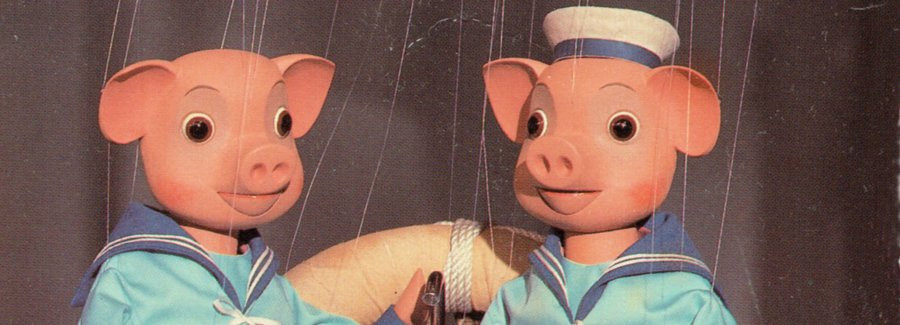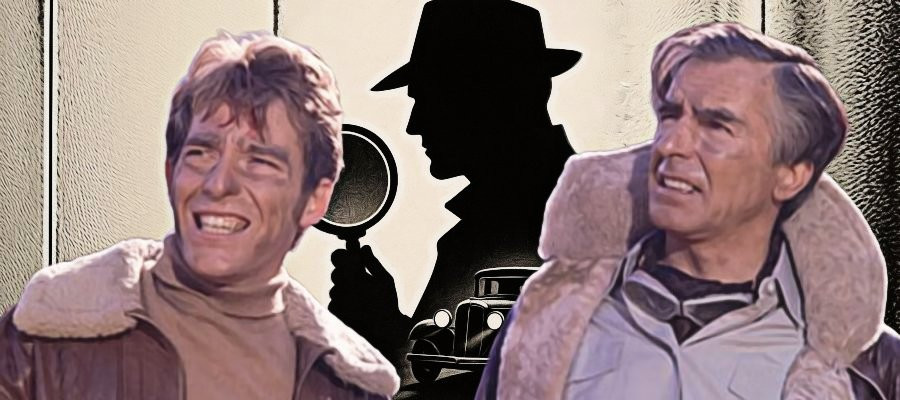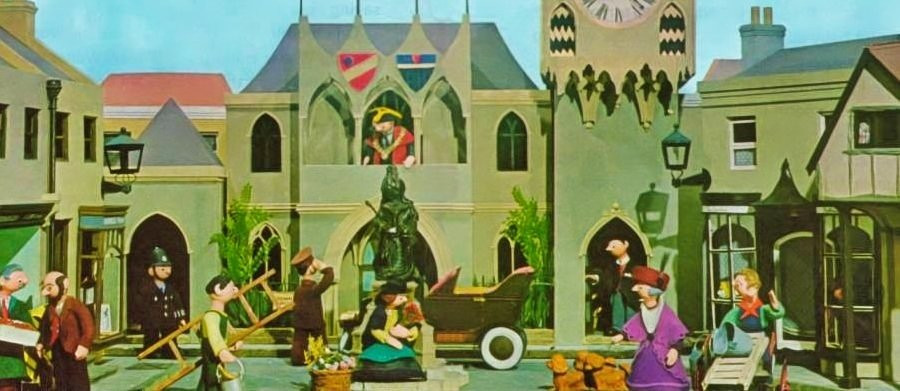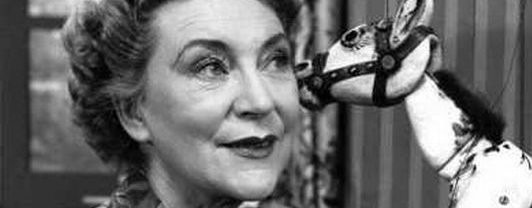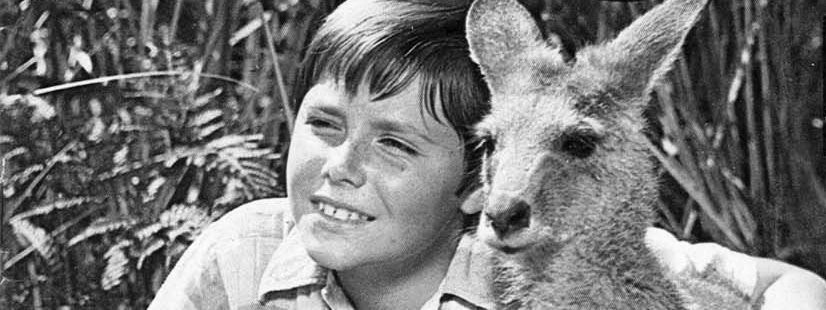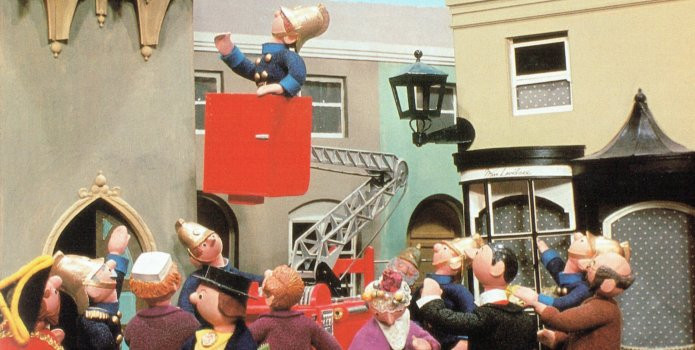
Trumpton
1967 - United Kingdom"This is the clock, the Trumpton clock, telling the time, never too quickly, never too slowly..." These are the words that introduced Gordon Murray's stop-motion puppet series sequel to Camberwick Green.
Set in the larger town of Trumpton the series mainly featured Captain Flack and his intrepid crew of fire-fighters, Pugh, Pugh (who were twins), Barney McGrew, Cuthbert, Dibble and Grubb. Each episode began with the roll call (the Fire Brigade appeared in every episode) and finished with the Brigade's Thursday night band concert recital.

As with Camberwick Green, Trumpton was created by Gordon Murray with stop-motion animation by Bob Bura and John Hardwick. Murray was born in London on 3 May 1921 - the youngest of four children he attended Emanuel School, where he spent most of his time in the art and drama departments. His favourite place to visit as a child was the Victoria Palace Theatre where he was often taken by his father to watch the variety shows being staged there. Murray was particularly taken with anything to do with marionettes. During the Second World War, Gordon Murray was commissioned into the Royal Corps of Signals and took part in the Normandy landings as a platoon commander, landing on Gold Beach. After the war, he worked as an actor in repertory theatre. In the 1950s, Murray established a puppet company and whilst touring different theatres in the UK he was scouted by BBC producer Freda Lingstrom. His first television credit was in 1954 as a puppeteer on Bengo - a children's programme about the adventures of a boxer puppy.
Gordon Murray had previously worked with Bob Bura and John Hardwick on a puppet series called A Rubovian Legend when they teamed up to create Camberwick Green, which turned out to be the first of three children's series that would eventually be referred to as the Trumptonshire Trilogies.

Camberwick Green and Trumpton were created using stop motion animation and 3D scaled down models. Gordon Murray made the original puppets using ping-pong ball heads and foam bodies, but they were restrictive insofar as not having the joints needed to allow the animators to repeatedly position the limbs in different poses. Bura & Hardwick’s solution was to modify these puppets using a wire framework. At the beginning of each series Murray would deliver the sets, puppets and scripts to their film studio and the animators would then be left alone to create the film. Each episode opens with the town hall clock and ends with the fire brigade band playing. Every show tells the story of one of the townsfolk.

In 2011 the episodes were digitally restored after William Mollett, son-in-law of Gordon Murray, found original footage in an attic. Further material was found in the BBC Archive.
Shown as part of Watch With Mother in the slot vacated by Camberwick Green, Trumpton survived for 13 episodes before Murray moved on to tales of the next town in Trumptonshire, Chigley.
Seen this show? How do you rate it?
Seen this show? How do you rate it?
Published on April 21st, 2021. Written by Marc Saul for Television Heaven.



